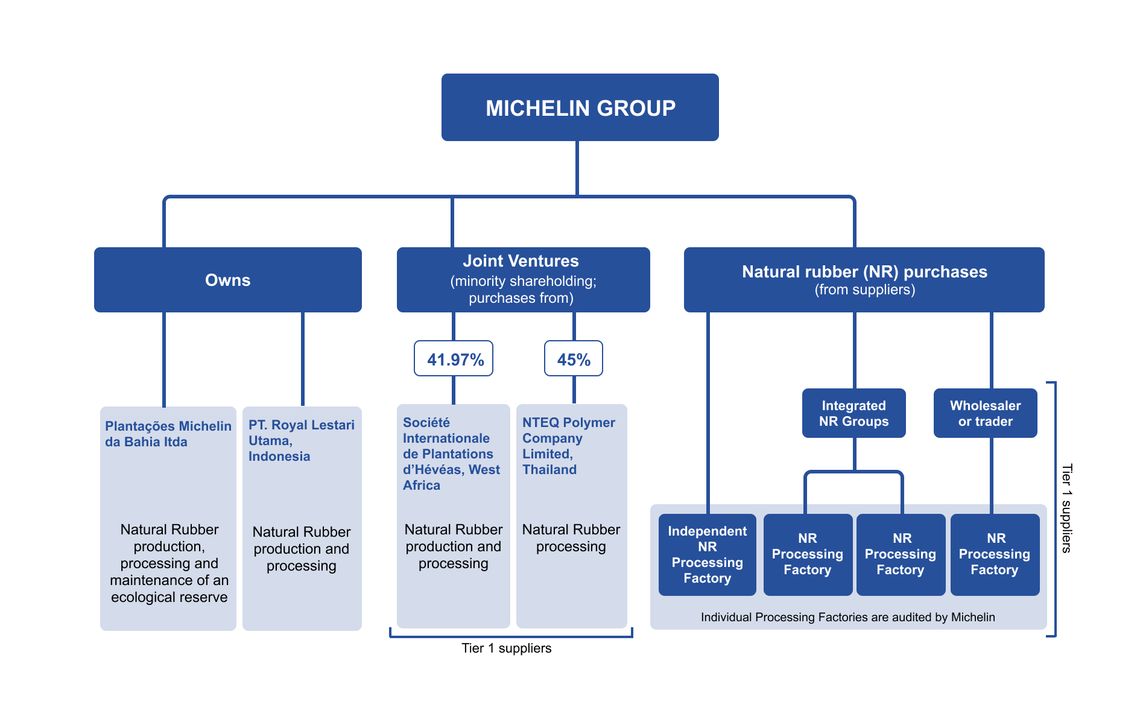History
Supporting a sustainable industry and supply chain, with a strategic material central to the Group.
Michelin’s history
Michelin’s history is closely tied to natural rubber; it has gained unparalleled expertise.
At the end of the 19th Century, Michelin became involved in natural rubber. To learn more about rubber, André Michelin went to Brazil and brought back a large quantity of samples to Clermont-Ferrand. With the increasing strategic importance of the natural rubber throughout the 20th century, Michelin undertook investments in production as well as research and developed unparalleled expertise in the use and production of the material.
Over the years, the Group has reached several important milestones, including publication of its sustainable natural rubber policy, assessing the labor and environmental practices of its suppliers, and collecting CSR information from stakeholders up and down its value chain. This pragmatic and responsible approach to managing natural resources is a core component of Michelin’s “All-Sustainable approach”.
Our Operations
With a strong global network, Michelin is committed and promotes sustainable practices across the natural rubber industry.

Today, natural rubber is more than ever a key manufacturing input for the Group, one of the world’s largest buyer of natural rubber.
Michelin retains ownership of a production area and processing facilities in Brazil, with its landbank primarily dedicated for research and development and ecosystem restoration. It maintains a global network of partners and joint ventures in South-east Asia and West Africa.
Michelin equally works to transform this industry toward excellence in quality and sustainability. This gives the Group unrivalled legitimacy and expertise in deploying responsible natural rubber projects and initiatives.